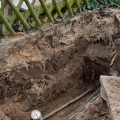At first glance, HVAC (Heating, Ventilation, and Air Conditioning) and plumbing may seem like similar trades since both deal with systems that contribute to the comfort and functionality of homes and commercial buildings. However, while they share some similarities, these two fields are distinct in both their functions and the expertise required to install, repair, and maintain them. Anytime Plumbing Inc. in Santa Cruz specializes in providing top-notch plumbing services for both residential and commercial properties.
What is HVAC?
HVAC systems are responsible for regulating indoor climate, ensuring that a building remains at a comfortable temperature year-round. They handle heating, cooling, ventilation, and sometimes air purification. HVAC technicians focus on maintaining and repairing furnaces, air conditioning units, ventilation ducts, heat pumps, and thermostats. These systems are essential not only for personal comfort but also for air quality and energy efficiency in both residential and commercial buildings.
HVAC professionals need to have a deep understanding of how air moves through a space, the mechanics of refrigeration systems, and how different components work together to create an energy-efficient and effective climate control system. This often involves intricate electrical work, balancing systems, and sometimes coordinating with smart technologies to create customizable indoor climates.
What is Plumbing?
Plumbing, on the other hand, deals with the movement of water, gas, and waste through pipes. Plumbers install and maintain systems that bring water into a building, as well as those that remove wastewater safely. Plumbing systems include water heaters, faucets, toilets, septic systems, and sometimes gas lines. A plumber’s job is to ensure that these systems operate efficiently and safely, as well as to address any issues related to leaks, blockages, or poor water pressure.
Like HVAC technicians, plumbers also deal with highly complex systems, but their focus is more on the mechanical aspects of water flow, piping materials, and installation. Understanding how water pressure works, the proper techniques for joining different materials (like copper and PVC), and adhering to strict safety standards when it comes to gas lines and septic systems are all part of a plumber's responsibilities.
The Key Differences Between HVAC and Plumbing
Though both HVAC and plumbing professionals work in mechanical systems, their areas of expertise are quite distinct. The primary difference lies in what they work with: HVAC professionals focus on air and climate control, while plumbers focus on water and waste. This leads to the need for specialized tools, techniques, and training for each profession.
For instance, HVAC work often involves electrical wiring and the installation of climate control systems. Technicians must be skilled in working with thermostats, ductwork, and refrigeration cycles. In contrast, plumbers rarely work with electrical systems, but they are well-versed in piping systems, water heaters, and gas lines.
Another difference is that HVAC systems are generally focused on making the indoor environment comfortable by regulating temperature and humidity, whereas plumbing systems are primarily designed for sanitation and water delivery. HVAC systems can be more complex due to the range of technology involved, especially with the rise of smart thermostats and energy-efficient heating and cooling systems.
Overlap Between HVAC and Plumbing
Despite these clear differences, there is some overlap between HVAC and plumbing. For instance, both HVAC technicians and plumbers may install water heaters or work on systems that involve both water and air. Some HVAC systems, such as hydronic heating systems, require an understanding of both plumbing and HVAC principles because they use water to transfer heat throughout a building. Additionally, both trades may be called upon in new construction or renovation projects to ensure that a building’s climate control and water systems function seamlessly together.
In some commercial settings, especially large buildings or industrial facilities, HVAC and plumbing systems are more interconnected. In such cases, professionals from both trades often need to collaborate to ensure that systems are installed properly. This is especially true for projects where space is limited, and the coordination of ductwork, pipes, and electrical wiring is necessary.
When to Call HVAC and When to Call Plumbing
Knowing when to call an HVAC professional versus a plumber depends on the specific issue at hand. For instance, if the problem involves a water leak, blocked pipes, or a malfunctioning toilet, a plumber is the right person to contact. However, if the issue relates to a faulty air conditioning unit, heating system, or thermostat, an HVAC technician is better suited for the job.
For homeowners and business owners, understanding the difference between these two professions can save time and ensure that the right expert is called for each situation. In some cases, such as complex repairs or new installations, you may need both HVAC and plumbing professionals to work together.
For businesses that want to ensure their building's climate and plumbing systems are functioning optimally, routine maintenance is key. This is especially true for commercial buildings, where both HVAC and plumbing systems endure significant wear and tear. Building managers often rely on trusted contractors, including commercial cleaners in Sydney, to keep these systems running efficiently and avoid costly repairs.
Conclusion
While HVAC and plumbing are both essential services that contribute to a building's functionality and comfort, they are distinct trades with specialized expertise. HVAC professionals focus on heating, cooling, and ventilation, while plumbers handle water systems and gas lines. Though there is some overlap, particularly in large or complex projects, understanding the difference between these two fields ensures that the appropriate professional is called when needed. Whether you’re managing a residential home or a commercial facility, recognizing the role of both HVAC and plumbing systems helps in maintaining a comfortable and safe environment.




